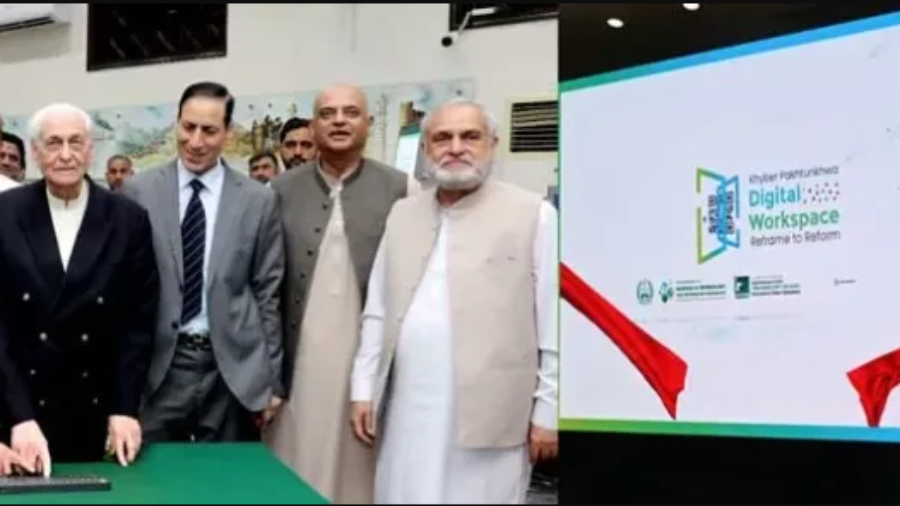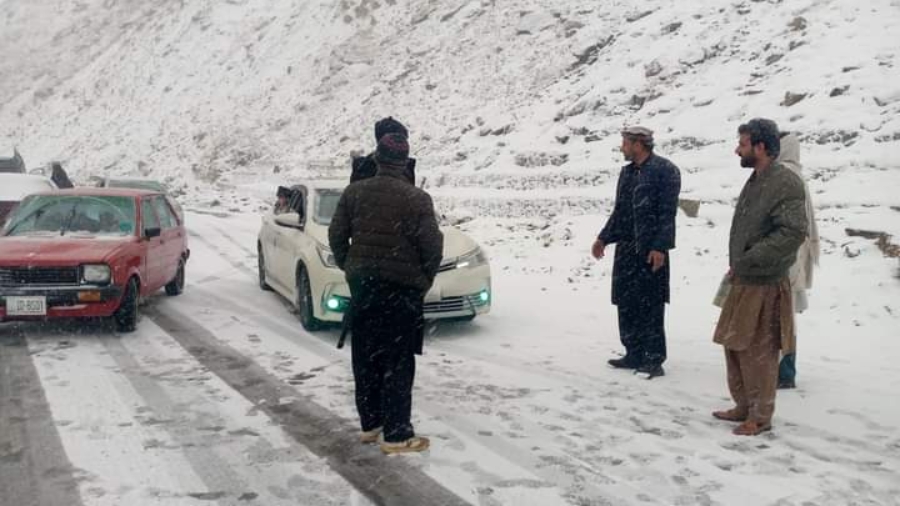صوبائی محکموں کی ڈیجیٹلائزیشن میں خیبرپختونخوا ملک کا پہلا صوبہ بن گیا۔صوبے کے انتظامی محکموں میں فائل ورک کو پیپرلیس بنانے کیلئے کے پی ڈیجیٹل ورک اسپیس کے نام سے ای گورننس پلیٹ فارم کا باضابطہ اجراءکیا گیا۔ای گورننس پلیٹ فارم کے اجراء کی تقریب کا انعقاد وزیر اعلی ہاؤسمیں کی گئی ۔ تقریب کے مہمان خصوصی نگران وزیر اعلیٰ محمد اعظم خان تھے ۔جنہوں نے ای گورننس پلیٹ فارم کے پی ڈیجیٹل ورک اسپیس کا باقاعدہ اجراءکیا۔ڈیجیٹل ورک اسپیس سے مختلف سرکاری محکموں میں فائل ورک اور دیگر روزمرہ کے امور آن لائن نظام پر منتقل ہونگے۔اس اقدام سے سرکاری امور کی انجام دہی میں وقت کی بچت اور شفافیت یقینی ہوگی۔ڈیجیٹل ورک اسپیس سے کاغذ کا استعمال ختم ہو جائے گا۔ جس کے ماحول پر بھی مثبت اثرات مرتب ہوں گے۔اس آن لائن نظام سے سرکاری محکموں کی استعداد کار میں کئی گنا اضافہ ہوگا۔
تقر یب سے خطا ب کر تے ہو ئے نگران وزیر اعلیٰ محمد اعظم خان نے بتا یا یہ ای گورننس کی طرف ایک اہم اقدام ہےپیپر لیس سسٹم سے سرکاری محکموں کے استعداد کار میں اضافہ ہوگا۔اس اقدام سے سرکاری اُمور میں شفافیت کو یقینی بنانے کے ساتھ ساتھ وسائل کے ضیاع کو بھی روکا جاسکے گا۔ای گورننس منصوبے کے تحت ڈاکو منٹ ورک فلو مینجمنٹ سسٹم تیار کیاگیا ہے جس سے وقت اور وسائل دونوں کی بچت ہو گی ۔
وزیر اعلیٰ محمد اعظم خان نے مزید کہا کہ خیبر پختو نخوا سپیشل ٹیکنا لو جی زونز کے قیا م میں بھی سبقت لے گیا ہے جس سے معاشی استحکام اور روزگار کی تخلیق میں اہم کردار ادا کریں گے صوبے کے نوجوانوں کو جدید دور اور مارکیٹ کے تقاضوں سے ہم آہنگ کرنے کیلئے انفارمیشن ٹیکنالوجی اور ٹیکنکل سکلز سکھائے جارہے ہیں۔نوجوان نسل کو انفارمیشن ٹیکنالوجی اور دیگر ٹیکنکل سکلز سکھانے کیلئے خاطر خواہ وسائل خرچ کئے جارہے ہیں۔وزیراعلی نےتقر یب سے خطا ب کر تے ہو ئے بتا یا صوبے میں سائنس و انفارمیشن ٹیکنالوجی کے شعبے کے فروغ کو بھی خصوصی توجہ دی گئی ہے ۔اس مقصد کیلئے اربوں روپے مالیت کے منصوبوں پر کام ہو رہا ہے۔ وزیر اعلی خیبر پختو نخوا نےای گورننس کو عملی جامہ پہنانے پر محکمہ سائنس و انفارمیشن ٹیکنالوجی ، کے پی آئی ٹی بورڈ اور دیگر شراکت داروں کو داد دی ۔صوبے میں آئی ٹی کے شعبے میں جدت لانے کیلئے معاونت فراہم کرنے پر ورلڈ بینک اور دیگر شراکت داروں کا بھی شکریہ ادا کیا۔





